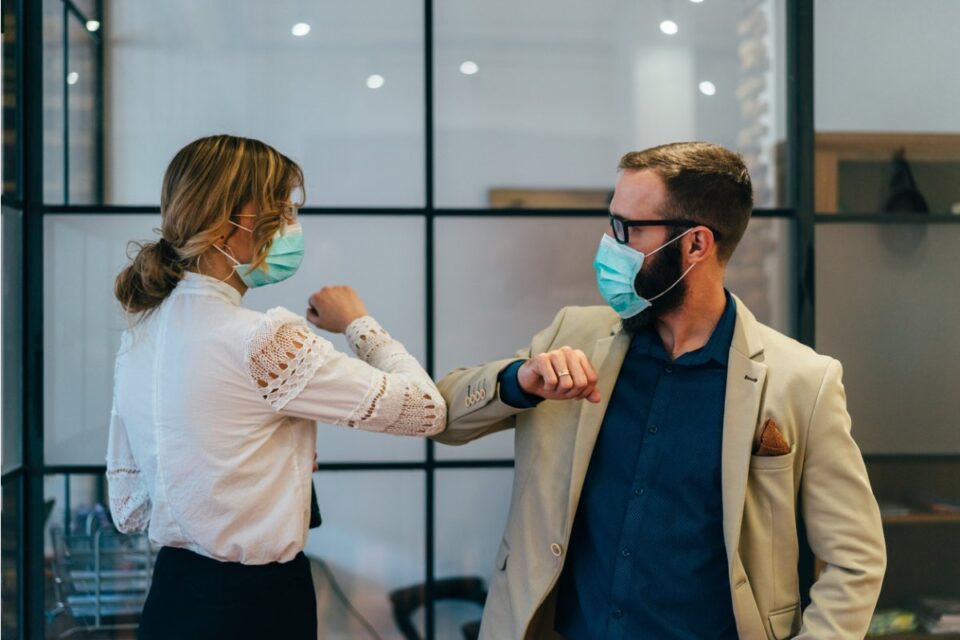The impact of covid-19 pandemic has significantly modified our routines and social encounters.
Cover your mouth with your hand when you sneeze, say hello with a hug, or not protect yourself when you have a cold. They were the most common actions before the forcible introduction of the word ‘ covid-19′ into our everyday vocabulary. These have now gone down in the annals of history in favor of health protection. And it is that the pandemic, in addition to altering our dictionary, has also completely changed our day to day, through small routines that we have incorporated to safeguard health, both from the virus that has transformed our lives and from other diseases that even now they circulated with impunity like the flu or gastroenteritis.
Along with these habits, the security measures in terms of restrictions have finished shaping the one that is already being enshrined as in the new era AD –after the covid-19–, and which undergoes notable changes in the way we relate to the others, to spend our leisure time or to connect with the landscape that surrounds us.
Table of Contents
At a Meter and a Half
Kisses on the cheek when greeting or saying goodbye seem like a thing of the past. Although the importance of hugs and caresses from close people must always be vindicated, these last months have shown that some conventions, in addition to not complying with the rules of social distancing demanded by the health context, can be easily replaced by other more straightforward gestures, like saluting with the elbow. However, there is still room for improvement in this matter: it is possible to say hello and say goodbye without making physical contact.
Face to Face or Screen?
Social distancing has its consequences: while the need for closeness with the people we hold dear has been demonstrated, we have realized that there are many social gatherings that we can reduce to a video call.
Notebook in hand, we have reconsidered groups of coexistence and social encounters calculating sanitary measures. With the recommendation to reduce social contacts to the essentials, mobility limitations and perimeter closures and the schedule set by curfew, we have reorganized our social priorities to continue seeing family and close friends with the required security. There are encounters, escapades and outings that can wait for the pandemic meters to improve and that, after a few months of waiting, we will surely enjoy the same or more.
On the other hand, it has also been revealed that different types of meetings are perfectly adaptable to screens, such as events, acts, or training sessions. The ‘online’ modality will be an option to consider to improve the comfort of the attendees. A similar phenomenon has happened with purchases or daily activities: the pandemic has forced us to digitize ourselves –both users, businesses or the public administration–, with which the digital ecosystem has gained relevance.
Return to Open Air
Confinement at home highlighted the importance of going outside: relating to the environment and the nearby landscape in a conscious way has led many people to rethink the importance of connecting with nature, the function of public space and even the place where they want to live. The return to the open air is also linked to the forced closure of gyms and spaces where they can exercise.
Taking a route through nearby roads, cycling or organizing an ‘outdoor’ paddle tennis match, in addition to being good options to keep fit, have become good opportunities to socialize. The open air also offers its version of more sedentary encounters than the terraces of bars and restaurants, suitable for meeting friends and sunbathing. All this in a more Europeanized schedule since we have had to advance our outings and activities to comply with the limit set by the curfew.
Hygiene Improvement
This virus has shown that our personal hygiene habits could improve. Although at first, they were hard, the months of living with masks, hydro alcoholic gel, household disinfectant and hand soap have put health at the center of our priorities and, therefore, of our routines, also, through small gestures, such as sneezing into the inner part of the elbow or being aware of not touching the eyes or mouth with dirty hands, customs that until now had not been taken into account and that is nevertheless necessary for the containment of the virus.
They have been months of adaptation and a lot of learning. And although no one knows for sure what will happen when group immunity arrives, everything indicates that some of these customs will mark an era.


